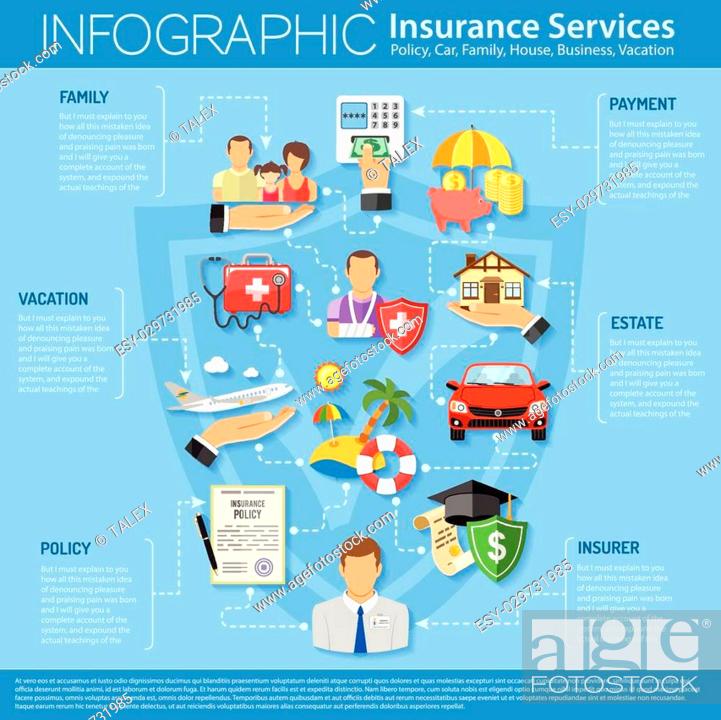Content Writer-Roman Bean
Prior to devoting to an insurance plan, it's essential to have an in-depth discussion with your agent to clear up critical facets of your insurance coverage. You'll want to guarantee you have a strong understanding on what is and isn't covered, along with any potential limitations or limitations that may catch you off-guard later. Recognizing the nuances of your plan, including its protection degree, costs framework, and deductible terms, can make all the distinction in safeguarding yourself properly. So, prior to putting pen to paper, make sure you're equipped with the best inquiries to make educated decisions about your insurance protection.
Coverage Information and facts
When talking to your insurance policy agent, ensure you look into the fundamentals of your policy's insurance coverage details. https://www.kiplinger.com/personal-finance/insurance/insurers-restricting-coverage-in-florida to recognize just what is covered under your insurance plan to prevent any kind of shocks when you need to file a claim. Ask your agent about certain situations and whether they drop within the insurance coverage range.
Inquire about any type of limitations or exclusions that might apply to particular situations. Recognizing your insurance coverage details can assist you make notified choices about your insurance policy needs and prevent any misunderstandings in the future. Make certain to clear up the extent of protection for various groups such as obligation, residential or commercial property damages, and individual valuables.
Knowing hop over to this site of your coverage can provide you comfort and ensure you're effectively protected in case of an unexpected event. Make the effort to undergo your plan completely with your representative to completely understand the security your insurance policy provides.
Costs and Deductibles
Regularly reviewing your insurance policy can supply useful insights into how your premium and deductibles can affect your general monetary safety and security. Understanding the connection in between your premium and deductibles is important in managing your insurance costs properly.
The premium is the amount you pay for your insurance policy coverage, usually on a month-to-month or annual basis. A lower premium might appear enticing, however it often comes with higher deductibles, which is the amount you need to pay out of pocket prior to your insurance policy kicks in.
When discussing premiums with your insurance coverage agent, ask about any kind of discount rates or factors that can affect your costs rates. In addition, ask about deductible choices and how they can influence your general expenditures in the event of an insurance claim.
Finding the right balance between your costs and deductibles is important to ensure you're effectively secured without overextending your budget plan. By making clear these information ahead of time, you can make enlightened decisions that straighten with your monetary goals and run the risk of resistance.
Policy Limitations
Reviewing your insurance plan is vital to understanding the constraints it might have. Policy limitations refer to the particular problems or constraints detailed in your insurance coverage that may impact the degree of security you obtain. These limitations can differ based on the kind of insurance coverage you have, such as home, automobile, health, or life insurance. It's important to ask your insurance coverage agent about any type of restrictions in your policy to stay clear of shocks when making a claim.
Common plan constraints include insurance coverage caps, which are the maximum quantities your insurance policy will pay out for certain damages or losses. One more limitation could be exclusions, which are specific events or conditions not covered by your plan. It is necessary to know if there are any restrictions on protection for certain things or circumstances. Comprehending these constraints can aid you make educated decisions concerning your insurance coverage requires and ensure you're appropriately protected in case of an unanticipated event. Make certain to make clear any kind of doubts with your insurance representative to have a clear understanding of your policy limitations.
Conclusion
Before authorizing an insurance policy, make sure to ask your representative all the required concerns to totally understand your insurance coverage. By making clear information on protection, costs, deductibles, and restrictions, you can stay clear of any type of surprises in the future. Bear in mind, it's vital to have a clear understanding of your plan to ensure you are effectively safeguarded. So, don't wait to ask your insurance policy agent all the important concerns before committing to a policy.

